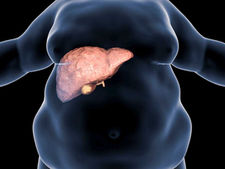
COPD
COPD (CHRONIC OBSTRUCTIVE LUNG DISEASE) What is COPD?
Chronic Obstructive Pulmonary Disease is a disease that makes breathing difficult due to the narrowing of the airways in the lungs.
When Does COPD Occur?
Chronic obstructive pulmonary disease (COPD) occurs when the lungs and airways become damaged and inflamed. It is often associated with long-term exposure to harmful substances such as cigarette smoke.
What are the COPD Risk Factors?
Smoking Smoking is the main cause of COPD and is thought to be responsible for around 9 in 10 cases. Harmful chemicals in smoke can damage the lining of the lungs and airways. Quitting smoking can help prevent COPD from getting worse. Some research also suggests that exposure to other people's cigarette smoke (passive smoking) may increase your risk of COPD. Smoke and dust in the workplace Exposure to certain types of dust and chemicals in the workplace can damage the lungs and increase your risk of COPD. Substances that have been linked to COPD include: Cadmium dust and fume Grain and flour dust Silica dust Welding fumes Isocyanates Coal dust The risk of COPD is further increased when you breathe in dust or smoke at work and when you smoke.
Air pollution Long-term exposure to air pollution can affect how well the lungs work, and some research suggests it may increase your risk of COPD. However, the link between air pollution and COPD is currently unclear and research is ongoing. Genetics You are more likely to develop COPD if you smoke and have a close relative with the disease, suggesting that some people's genes may make them more vulnerable to the condition. About 1 in 100 people with COPD have a genetic predisposition to develop the condition called alpha-1-antitrypsin deficiency. Alpha-1-antitrypsin is a substance that protects the lungs. Without it, the lungs are more vulnerable to damage. People with alpha-1-antitrypsin deficiency often develop COPD at a younger age, especially if they smoke.
What are the Symptoms of COPD?
The most common symptoms are phlegm and cough. Intermittent cough is observed in mild stages. In later stages, cough may be observed throughout the day. Increased sputum may be a symptom of COPD or may be related to bronchitis. In the early stages, patients generally do not notice shortness of breath as it occurs only during high-intensity physical activity. Cough and phlegm are evident in the middle stage. In the last stage, more severe symptoms are observed compared to the other stages. It can be seen as bruising on the lips, tongue and fingertips, palpitations, weight loss, constipation, sexual reluctance, abdominal swelling, severe headache, sweating, insomnia, forgetfulness, irritability, feeling of tremors and numbness in the hands, prominence in the neck veins, and edema in the legs.
What are the Treatment Methods for COPD?
COPD is a disease for which early diagnosis is very important. The damage it causes cannot be cured, but with treatment, the discomfort it causes is significantly reduced. The most important part of treatment for smokers is to quit smoking. It is also recommended to avoid tobacco smoke and other air pollutants at home and at work. Medication: Symptoms such as coughing or wheezing can be treated with medication. Pulmonary rehabilitation: is a personalized treatment program that teaches you how to manage your COPD symptoms to improve your quality of life. Plans may include learning how to breathe better, how to maintain your energy, and what kinds of foods and exercises are right for you.
Preventing and treating lung infections: Lung infections can cause serious problems in people with COPD. Some vaccines, such as flu and pneumonia vaccines, are especially important for people with COPD. Learn more about vaccination recommendations. Respiratory tract infections should be treated with antibiotics if appropriate. Supplemental oxygen: A portable oxygen tank may be needed if blood oxygen levels are low.
FOR INFORMATION AND APPOINTMENT, YOU CAN LEAVE YOUR NUMBER OR ASK OUR EXPERTS
YOU CAN LEAVE YOUR NUMBER FOR INFORMATION AND APPOINTMENT AND ASK QUESTIONS TO OUR EXPERTS



-04.png)
-06.png)
-05.png)
-08.png)
-07.png)





















